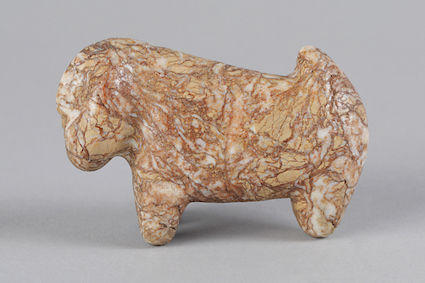Indus Valley stone figurine of a horse
There are only a limited number of settlements like Harappa, Lothal, Surkothada and Kalibangan, where horse remains were reported as have been discovered. Sándor Bökönyi, a well-known Hungarian Archeozoologist, has...
There are only a limited number of settlements like Harappa, Lothal, Surkothada and Kalibangan, where horse remains were reported as have been discovered. Sándor Bökönyi, a well-known Hungarian Archeozoologist, has come to the conclusion that the bones found in Surkothada probably have belonged to a horse. New excavations taking place in the sites of Shikarpur, in the Sindh province of Pakistan and only thirty kilometres away from the right bank of the Indus River, and Gujarat, India's westernmost state, have also revealed horse remains, though in very low quantities. It can thus be concluded that the people of the Indus Valley Civilisation knew and used the horses though probably their utility was only confined to a small scale as horses were not native to the region's geography and also because the people had access to other animals for the purpose of transportation and for draught work.



